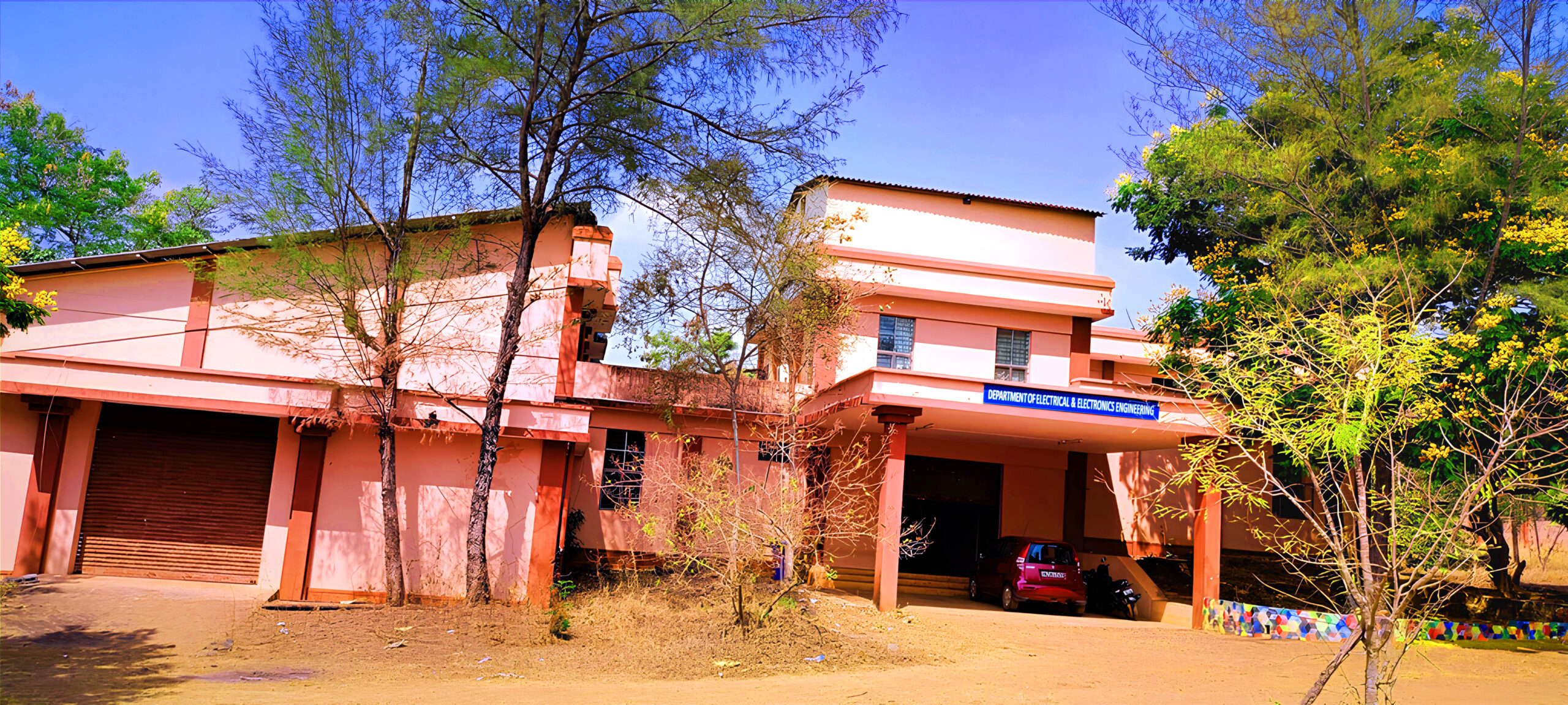
“The world thrives on Electrical Energy”
“The career of an Electrical Engineer is most Interesting, responsible and provides immense opportunities to serve the community”
VISION
To nurture world class Electrical and Electronics Engineers contributing to the society at large with emphasis on sustainable technologies.
MISSION
Our graduates will:
PEO1 : Excel in industry and academics in electrical and allied domains.
PEO2 : Pursue careers in multi-disciplinary areas conforming to ethical values and environment
friendly policies.
PEO3 : Inculcate team work and foster the ability to relate electrical engineering solutions for social
benefits.&
PEO4 : Become successful innovators and entrepreneurs through life-long learning.
| PROGRAM SPECIFIC OUTCOMES (PSOs) | |
|
Our graduates will be able to: |
|
| PSO1 | Attain competence in developing, testing and implementing electrical and electronic systems with proper usage of software and hardware tools. |
| PSO2 | Apply theoretical concepts of power systems, electric drives and control systems for analysing and identifying solutions to tap clean energy considering the impact on society. |
About the Department
The Department of Electrical and Electronics Engineering was established in 1993, offering a B.Tech program in Electrical & Electronics Engineering with an intake of 60 students. The sanctioned intake for the four year B.Tech course now is 66 students, which includes 6 lateral entry students during the third semester.
The Department is well-stabilized with a team of vibrant faculty members and state-of-the-art laboratories. Its strength lies in the highly qualified faculty and proficient supporting staff. Furthermore, the department offers excellent research facilities and consistently updates its laboratory equipment with the latest technology. Besides academic excellence, the department encourages and supports the co-curricular activities of students for their overall development. Faculty members provide individual attention and mentoring to ensure the success of each student.
The department takes pride in its numerous distinguished alumni who have bagged university ranks and hold prominent positions in esteemed organizations such as NTPC, KSEB, HAL, DRDO, ISRO, Electrical Inspectorate, Railways, Civil Services, and various reputed organizations both in India and abroad. These alumni maintain continuous interactions with the department, offering invaluable guidance and support for the benefit and advancement of current students.
The department is actively involved in research and consultancy works across various fields of electrical engineering, viz.,
The department also houses its own library with more than 300 titles and 20 IS (Indian Standard) codes. It has an active Students’ Association that organizes technical fests and events, fostering a culture of innovation and collaboration.
Email:eed@lbscek.ac.in

Associate Professor and Head of Dept
Electrical and Electronics Engineering Department
Mobile :9446463953
Email : jayakumar@lbscek.ac.in
TEACHING STAFF
| Sl No | Name | Designation | Mobile number | Email.id |
| 1 | Prof. Jayakumar M | Associate Professor | 9446463953 | jayakumar@lbscek.ac.in |
| 2 | Dr. Visalakshi V | Associate Professor | 9400592187 | visa@lbscek.ac.in |
| 3 | Dr. Rajashree Raghavan | Professor | 9447378052 | rajashree@lbscek.ac.in |
| 4 | Prof. Baby Sindhu A.V. | Associate Professor | 9037667582 | sindhusudhir@lbscek.ac.in |
| 5 | Prof. Sheeja V | Assistant Professor | 9400102570 | sheejaprakash@lbscek.ac.in |
| 6 | Dr.Aseem K. | Assistant Professor | 6238893151 | aseem@lbscek.ac.in |
| 7 | Dr. Kannan M. | Assistant Professor | 9847485300 | kannanmadhavan@lbscek.ac.in |
| 8 | Prof. Sridhanya M I | Assistant Professor | 8089937726 | misridhanya@lbscek.ac.in |
| 9 | Prof. Abhilash V Nair | Assistant Professor | 8113020599 | abhilash@lbscek.ac.in |
| 10 | Prof. Anish Joseph Jacob | Assistant Professor | 9496642749 | anishjj@lbscek.ac.in |
| 11 | Prof.Arun S Mathew | Assistant Professor | 9446588123 | arun.s.mathew83@lbscek.ac.in |
TECHNICAL STAFF
| Sl No | Name | Designation | Mobile number | Email.id |
| 1 | Ms.Manju V | First grade Instructor | 9447413602 | manjuv@lbscek.ac.in |
| 2 | Sri. Deepak Sen J S | Trade InstructorGr.ll | 8893443922 | deepaksenjs@lbscek.ac.in |
| 3 | Mr.Subhash K | Trade Instructor Gr.II | 9961991414 | Subhashkannoth14@lbscek.ac.in |
| 4 | Mr. Shaiju A K | Trade Instructor Gr.ll | 8075315636 | shaijusaaru82@gmail.com |
|
Prof. Jayakumar M
Associate Professor |
Dr.Visalakshi V
Associate Professor |
Dr. Rajashree Raghavan |
Prof.Baby Sindhu A V
Associate Professor |
|
Prof. Sheeja V
Assistant Professor |
Dr. Aseem K
Assistant Professor |
Dr. Kannan M
Assistant Professor |
Prof. Sridhanya M I
Assistant Professor |
|
Prof. Abhilash V Nair
Assistant Professor |
Prof. Anish Joseph Jacob
Assistant Professor |
Prof. Arun S Mathew
Assistant Professor |
Mrs. Manju V
First grade instructor |
|
Mr. Deepak Sen J S
Trade Instructor Gr.II |
Mr.Subhash K
Trade Instructor Gr.II |
Shaiju A K
Trade Instructor Gr.ll |
The department is well facilitated with most useful amenities. It has its own department library, browsing centre, smart seminar hall etc
Laboratories
The department is well equipped with top class laboratories. Various laboratories provide platform for the students to learn the practical aspects of the theory they had grasped from the class rooms. More over, laboratories provide equipments for the students to materialize their project work to reality. All such works are being assisted by devoted staff members. Various laboratories that run by the EEE department are
Electrical Workshop
Electrical Machines Lab
Circuits and Measurements Lab
Electronics Circuits Lab
Power Electronics Lab
Control Systems Lab
Simulation Lab
Power system Lab
| ELECTRICAL WORKSHOP | |
 |
Electrical engineering workshop is utilised by all branches of first year students of LBS College of Engineering for Basic Electrical Engineering Workshop. We are conducting the experiments as per KTU syllabus for first year Engineering students. Mainly wiring exercises like parallel wiring, Staircase ,Godown ,Flourescent lamp wiring and Plug and socket wiring are done in this workshop. Measuring experiments like R,L,C measurements using LCR meter and single phase power measurements are conducted in this wokshop.Light distribution board demonstration is usually done here.Apart from this we are conducting consultancy works in this workshop for various government organisations. Major equipments in the workshop are bench grinder, power drilling machine, hand drilling machine, hot air blower, jigsaw cutter, soldering station,Digital earth tester,soldering station,LCR meter etc |
| ELECTRICAL MACHINES LAB | |
 |
This lab is one of the oldest labs in the campus as Electrical and Electronics branch was started at the beginning of the college 25 years ago. The modernized lab having a carpet area of 2310 sqft, still keeps its vintage look. The experiments performed in this lab are Brake test on a DC shunt motor, Brake test on a DC series motor, OC and SC tests on a single phase transformer, OCC of a DC shunt generator, Load test on a single phase transformer, Swinburne’s test on a DC shunt machine, Load test on DC shunt generator,S umpner’s test, Separation of losses in a single phase transformer, Separation of losses in a DC machine,Hopkinson’s test,Regulation of alternator by direct loading, EMF, MMF, Potier and ASA methods,Regulation of salient pole alternator using two reaction theory, Active and reactive power control in grid connected alternators, Variation of starting torque with rotor resistance and speed control in slip-ring induction motors, Brake tests on three phase squirrel cage and slip-ring induction motors,No-load and blocked rotor test on a three phase induction motor,Performance characteristics of a pole changing induction motors,V curve of a synchronous motor,Performance characteristics of an induction generator,Equivalent circuit of a single phase induction motor etc. |
| CIRCUITS AND MEASUREMENTS LAB | |
 |
The laboratory is well-equipped with instruments and equipments needed to familiarize the students with various areas of study related to measurement and calibration. The major equipments include energy meters, bridges and potentiometer circuits. The experiments are designed to reinforce and expand many concepts covered in the circuits & networks and measurements& instrumentation courses namely verification of network theorems, calibration of energy meters, measurement of power, calibration of LVDT etc. Students are also made to understand the phenomenon of hysteresis and other concepts related to metering. |
| ELECTRONICS CIRCUITS LAB | |
 |
This lab is intended to introduce students to the “Art of Electronics”. Students are familiarized with all the basic electronic components, its charaBcteristics and applications. The lab is fully furnished with advanced oscilloscopes, function generators, digital multimeters, regulated power supplies, integrated circuits and a wide range of electronic kits Students perform practical sessions on P-N junction diodes, Zener diodes, rectifiers and filters, characteristics and biasing techniques of BJT and FET, amplifiers, operational amplifiers, oscillators and 555 timer. The lab is also widely used by UG students to develop and test various electronic circuits and design projects. |
| POWER ELECTRONICS LAB | |
 |
The main objective of this lab is to introduce students to the different semiconductor devices and power electronic modules. Power electronic modules are used to study the characteristic of various semiconductor devices like SCR, MOSFET and TRIAC, various triggering methods like R/RC/UJT, analysis of single phase fully controlled bridge circuit, half/full semi converter with R/RL load etc. Synthesis of waveforms of different types of inverters/converters using simulation software are done in this lab. Being the most utilized lab by both PG and UG students for project and research, the department is pledged to constantly update and upgrade the lab with the state-of-the art equipment. |
| CONTROL SYSTEMS LAB | |
 |
To supplement the courses on Control Theory, the lab is well equipped with the state-of the art trainer kits and modules to enable students understand the components of an automation system. Students are also familiarized with the simulation software like MATLAB. Experiments done in this lab include the predetermination, design, realization and verification of frequency response characteristics of different compensators, analysis of P/PI/PID controllers and control system design using MATLAB control system tool box/SIMULINK |
| SIMULATION LAB | |
 |
The significance of the Electrical Circuit Simulation Lab is renowned in the various fields of engineering applications. For an Electrical Engineer, it is obligatory to have the practical ideas about the Electrical Circuits and Simulation. With modern technologies, sophisticated analytical software are available that aids problem solving. Under this lab, students are fed with an opportunity to study various well established software like MATLAB, Mi-Power,PSIM etc. Most of the text book problems can be solved using the these software installed in numerous computers. More over this lab provides the foundation stone for the students to step in to their PG studies for which knowledge of these software are essential. 1. Control systems simulation studies based on MATLAB such as Time domain response analysis using MATLAB, Stability analysis using MATLAB ,Study of the effect of P,PI and PID controllers,Open loop and Closed loop speed control of DC motor using Simulink, DC moto r speed control using PID controllers using control system tool box,Design of Lag, lead and lag-lead compensators using MATLAB 2. Power Electronics circuits and Drives circuits modeling and anlaysis such as Single phase fully controlled rectifier,Three phase fully controlled rectifier,Design and simulation of buck converter,Design and simulation of boost converter,Design and simulation of buck boost converter,Simulation study of single phase to single phase cyclo converter,Pulse width modulated inverter,Simulation study of single phase ac voltage controller,Simulation study of three phase ac voltage controller,Simulation study of multilevel inverter,Simulation study of multipulse converter,Induction motor drives 3. Power system simulation studies such as Load flow analysis –Gauss Siedel Method ,Load flow analysis –Newton Raphson Method,Load flow analysis –Fast Decoupled Method,Short Circuit Analysis – Symmetrical Faults,Short Circuit Analysis – Unsymmetrical Faults,Stability analysis of power system,Automatic generation control – Single Area,Automatic generation control – Two Area |
| POWER SYSTEM LAB | |
 |
Power system lab resources are High voltage Insulation tester (30kV, 30mA), IDMT over current relay (230V AC,5A), Electromechanical based IDMT over voltage relay(230V AC,110V), Earth tester (megger),Micro controller based Over voltage/Under voltage relay, Micro controller based Over current relay, Three phase over current relay, transformer oil test kit (manual and automatic) and simulation software Mipower. The lab is used for teaching Power system basics and advanced concepts. |
| DEPARTMENT LIBRARY | |
 |
The Electrical &; Electronics engineering department library facility provides a variety of useful books exclusively for the students of the department. There is a good collection of books in the field of Control system, Power Systems, Power Electronics, Electrical Machines, Electrical Drives etc. It also contains collection of project and seminar reports useful for the students and faculty members. The number of volume is more than 600. |
B.Tech Group Tutors
Each year admitted students to the department is looked after by a team of faculties who are responsible for and take care of individual students.
B.Tech
| Semester | Group Tutors |
|---|---|
| 2020-2024 | Prof. Sheeja V & Prof. SrIdhanya M I |
| 2021-2025 | Prof. Baby Sindhu A V & Prof. Anish Joseph Jacob |
| 2022-2026 | Dr. Aseem K & Prof. Kannan M |
| 2023-2027 | Prof. Abhilash V Nair & Prof. Arun S Mathew |
STUDENTS’ ACHIEVEMENTS
 |
Asish Yathish P (2019-23 EEE Batch) Hayash Habeeb Memorial Best outgoing student award (boy) for the year 2022-23 |
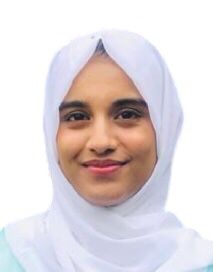 |
Fathimath Shibna A (2019-23 EEE Batch) Hayash Habeeb Memorial Best outgoing student award (Girl) for the year 2022-23 |
2022-2026 Batch

2021-2025 Batch
 |
 |
 |
 |
 |
 |
 |
 |
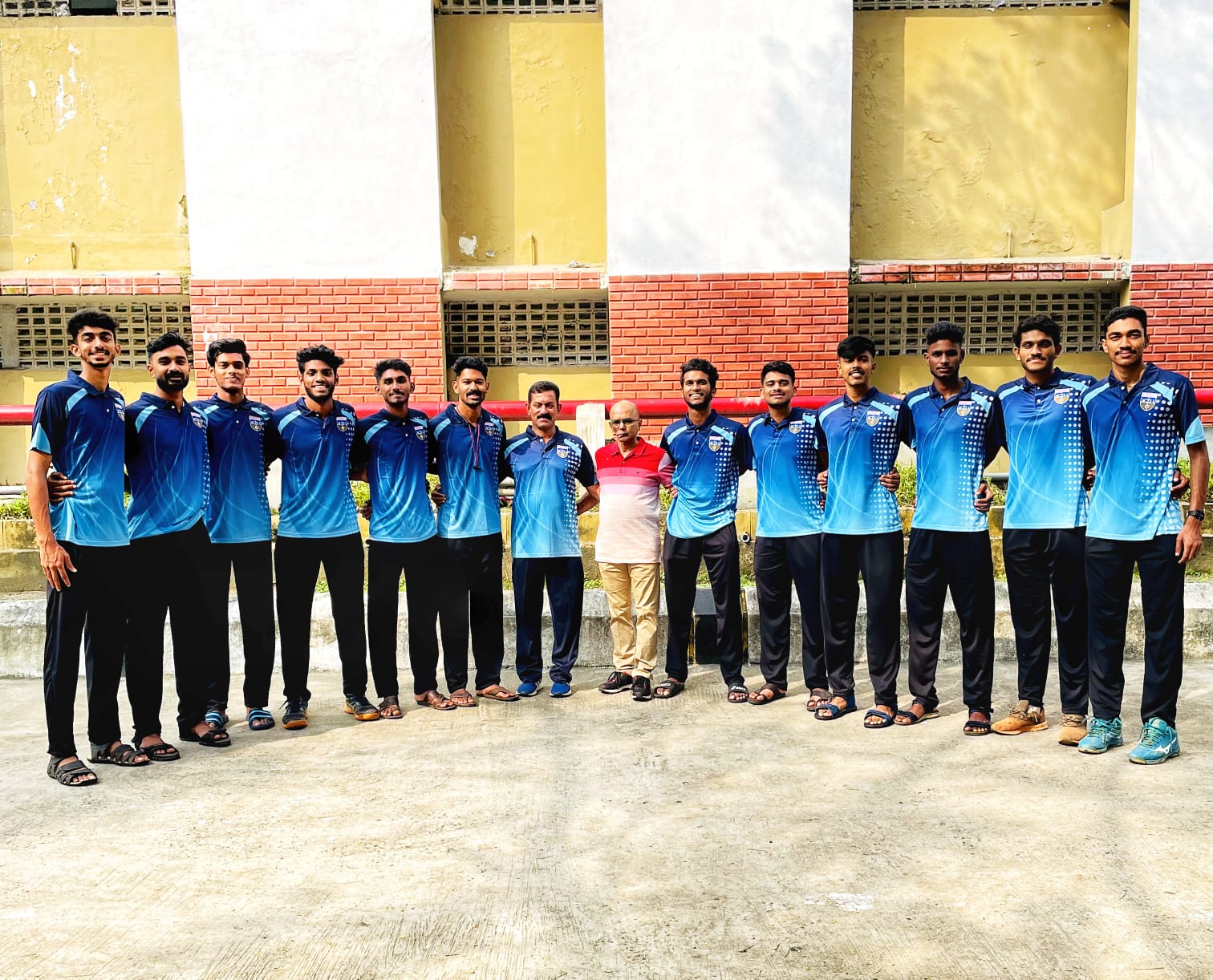 |
 |
 |
 |
 |
 |
 |
2020-2024 Batch
2019-2023 Batch
Abhishek Gopinath, ArunRemesh, Harshith C, Jeswin Thomas and Jayakumar M published an IEEE paper titled,” Energy Audit at LBS College of Engineering Kasaragod” 2023 Second International Conference on Computational Systems and Communication (ICCSC).
 |
 |
|
 |
 |
 |
FACULTY ACHIEVEMENTS
| SI No | Name of Faculty | Achievements |
| 1 |
Prof.Jayakumar M |
Prepared detailed Energy Audit Reports under TESP (Total Energy Study Project- A Project Sponsored by Ministry of Power, Govt.of India.—Study on 116 Industries of Kerala), |
|
Energy Conservation Society, State Award for outstanding contributions in the area of Energy & Environmental Conservation and promotion of people’s participation in Energy Conservation. (2003) |
||
|
Former Director in Charge, Centre of Excellence for Disability studies, Thiruvananthapuram. |
||
|
Former Deputy Director (Academic), LBS Centre for Science & Technology, Thiruvananthapuram. |
||
|
Co Investigator of the project titled,” Design and Development of Electric Cutter for Laterite Stone Quarries and Laterite Stone based Industries”, funded by IIT Madras. |
||
| 2 |
Dr.Visalakshi V |
Won the best paper award for the paper entitled ”Robust control of LV autopilot in Kharitonov’s framework” in a Regional seminar held at the College of Engineering Thiruvananthapuram. |
|
Reviewer of technical paper submitted for nCoretech-17, National conference coordinated by EEE Department, LBSCE Kasasragod. |
||
|
Chair of nCoretech-17, National conference coordinated by EEE Department. |
||
|
Contributed and presented a paper titled, “Multipurpose Agricultural Robot”at the International Conference on Intelligent Control and Computation for Smart Energy and Mechatronic Systems (ICCSEMS-2020), Sept. 25-26, 2020, Noida |
||
|
Principal Investigator of the project titled, ” Multipurpose Agricultural Robot”, funded by KSCSTE |
||
|
Successfully completed Ph.D. from IIT Madras. |
||
|
Chair of ICORETech 2024 (EEE section), an International conference coordinated by LBSCE Kasaragod. |
||
| 3 |
Dr.RajashreeRaghavan |
Resource Person of the ATAL FDP on Machine Learning Engineering for Productionorganised by Dept. of CSE, LBSCEK during Jan 8-13, 2024 |
|
Principal Investigator of the project titled,” Design and Development of Electric Cutter for Laterite Stone Quarries and Laterite Stone based Industries”, funded by IIT Madras (Ideas to Impact Challenge- Feb 2024). |
||
| 4 |
Prof. Baby Sindhu A V |
Member technical committee as reviewer for Electrical Insulation Conference 2024, to be conducted on Jun. 02 – 05, 2024, Minneapolis · United States |
|
Member technical committee as reviewer for Electrical Insulation Conference, Jun. 18 – 21, 2023 at Quebec City · Canada |
||
|
Co-investigator for the funded project ‘Sign Language Translator App’ funded by CeDS. |
||
|
Principal Investigator for the funded project ‘A multifunctional Intelligent Wheelchair for Differently Abled Persons’ funded by CeDS. |
||
|
Co-investigator for the funded project ‘Electric Tiller’ funded by CERD. |
||
|
Reviewer for IEEE conference conducted by LBS Institute of Technology for Women, Trivandrum, on 03-04 March 2023 |
||
| 5 |
Prof. Sheeja V |
Reviewer for 2022 IEEE International Conference on Power Electronics, Drives, and Energy Systems (IEEE) |
|
Principal Investigator for the funded project ‘Electric Tiller’ funded by CERD. |
||
| 6 |
Dr. Aseem K |
National level award winner of Institution Prize and Gold medal given by Institution of Engineers (India) 2023 for the best research publication during the year 2023 |
|
Approved Research Supervisor of APJAKTU from 25/09/2023 |
||
|
Successfully completed the Ph.D from Amrita VishwaVidyapeetham on 10-3-2023. |
||
|
Editorial Board Member of International Journal of Robotics and Control Systems (Scopus Indexed Journal, ISSN:2775-2658) |
||
|
Editorial Board Member of International Journal of Control Systems Engineering |
||
|
Winner of Prof. Aruna Shankar Bhatt Memorial Best Teacher Award of the year 2018 in recognition of outstanding contribution through the academic achievement and professional excellence. |
||
| 7 |
Dr. Kannan M |
Successfully completed Ph.D. from National Institute of Technology Tiruchirappalli on 19-01-2024. |
|
Member technical committee as reviewer for International Conference on Recent Advancements in Engineering and Technology, Feb 08-09, 2024, LBS |
||
|
Co-ordinator of the One-day workshop on Energy standards and Labelling for students and faculties on 28th February 2024 |
||
|
Co-ordinated the TEQIP-II sponsored three days Faculty Development Programme on “Solar Photovoltaics and Applications to Smart Grid” at LBSITW, Thiruvananthapuram from 25th to 27th July 2016 |
||
|
Officiated as a Programme Committee Member in the first International Conference on Computational Systems and Communications held at Thiruvananthapuram organized by L B S Institute of Technology for Women, 2014 |
||
|
Coordinated the ISTE – Sponsored three days Short Term Course on “Emerging Trends in Power Electronics and Systems”, 2012 |
||
| 8 |
Prof.Sridhanya M I |
Successfully Completed NPTEL Online Course in Power Electronics in 2020 |
|
Coordinator of the Expert Talk on “Off shore Wind Energy and Grid Integration Technology” for students in April 2021 |
||
|
Coordinator of STTP on “Solar Photovoltaics and applications to Smart Grid” at LBSITW in June 2017 |
||
|
Coordinator of Expert Talk on Space and Entrepreneurship on the eve of World Space Week 2023 |
||
| 9 |
Prof.Abhilash V Nair |
Special Appreciation by the Govt. Of Kerala for Six year Continious Service in national Service Scheme LBSITW Poojappura setting up New Unit plenty of activities ever in the history of the Institute. |
|
Successfully completed PEDAGOGY sponsored by TLC IITMadras / TEQIP-II LBSITW, at IIT Madras |
||
|
BoG Member and Maintenance Committee head TEQIP-II, LBSITW Poojappura during (2019-23) |
||
|
Special Appreciation by the Govt. Of Kerala for for the Best Program Officer NSS LBSITW. |
||
| 10 |
Prof. Anish Joseph Jacob |
Principal investigator for the funded project ‘Sign Language Translator App’ funded by CeDS. |
| 11 |
Prof. Arun S Mathew |
Electric Arc Flash Analysis and Preventive Arc Flash Detection (Applied for Patent through NIT Calicut and Kerala State Council for Science Technology and Environment (KSCSTE) |
|
Winner of ONGC Best Performer Scholarship (Rs. 60,000.00) during MTech-Industrial Power & Automation (2011-2013) at NIT Calicut. |
 |
 |
The Department of Electrical and Electronics Engineering Association is an official student organization under the EEE Department. Our objectives include assisting members in developing a better understanding of their profession and future career as well as encouraging communication between the Association and other organizations. The students who are the strength of the department are prime organizers of every event. Every two years, the department hosts “Gnista” the national-level technical fest. “Gnista” has been successful in all its relevance. It unites the department and provides students with a platform to identify and prove their organizing capabilities. The association is giving best project award every year for the final year students. Special achievement awards are also distributed every year for meritorious students.
Office Bearers and Members (2023-24)
Association Inauguration of the academic year 2023-24
The Electrical and Electronics Department Association was inaugurated on 28th February 2024 by Sri. Santhosh A, Certified Energy Auditor and Managing Director, Athul Energy Consultants, Thrissur, Kerala. The function was presided over by Prof. Jayakumar M, HoD, Electrical and Electronics Department in the presence of Principal Prof.(Dr.) Mohammad Sekoor T., who delivered a keynote address and felicitated by Prof. (Dr.) Praveen Kumar K, Dean (Academic), Prof.(Dr.) Vinodu George, Dean (Student Affairs) and Prof. (Dr.) Aboobacker Kadengal, Dean, (PG). To familiarize the students, a display of major equipments namely Power energy and harmonic analyzer, clam-on power meter, and Infrared thermal imager that are employed for Energy Audit was conducted.
List of Activities organized by Association.
| Sl.No. | Academic Year | Date of Activity | Name of Activity |
|---|---|---|---|
| 1 | 2023-24 | 28.02.2024 | Association Inauguration followed by A workshop on Energy Standards and Labelling involving Expert talks by Athul Energy Consultants Thrissur. |
| 2 | Expert talk on “Public Domain and Mobile App” | ||
| 3 | Expert talk on “Know your star label and make a right choice” | ||
| 4 | Expert Talk on “Enforcement of Standards and Labelling” | ||
| 5 | 2022-23 | 09.10.2023 | Expert talk on “Space and Entrepreneurship” by Sri. Abdul Shaheed M, Technical Officer, LPSC, ISRO, Thiruvananthapuram as a part of World Space Week |
| 6 | 26.04.2023 and 27.04.2023 | Intercollegiate Technical Festival Gnista 2.23 | |
| 7 | 28.11.2022 | One-day workshop on “Introduction to Arduino and Raspberry Pi”, by Kabani Tech, Shoranur, Kerala | |
| 8 | 23.11.2022 | Expert Talk on “Understanding Latex-The Roadway to Tech Writing” by Prof. Pramod P, LBSCEK | |
| 9 | 2021-22 | 19.02.2021 | 4A one-day workshop on “Enter the Power-An Introduction to Energy Audit”, by Athul Energy Consultants Thrissur |
 |
 |
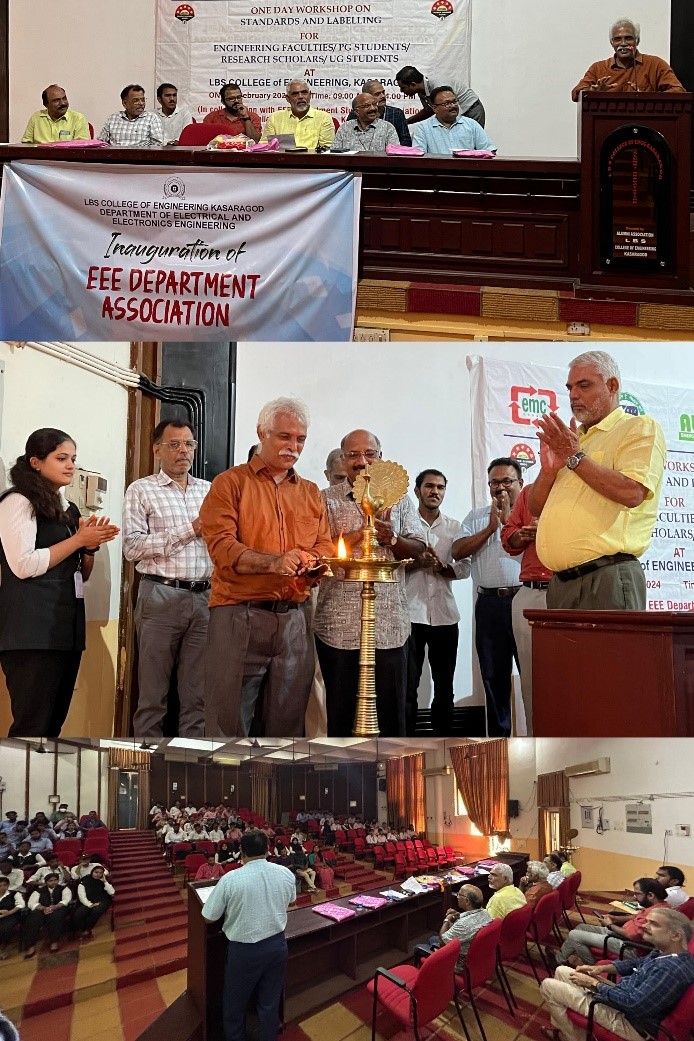 Inaugural Function of EEE Association on 28.02.2024 Inaugural Function of EEE Association on 28.02.2024 |

|
 |
ICT BASED TEACHING METHODS
| Faculty | YouTube Channel link | Subjects | |
| Prof.Jayakumar M | https://www.youtube.com/@jayakumarmadhavan3115 | Energy Management | |
| Dr.Visalakshi V | Google Classrooms | https://classroom.google.com/c/NzA2NDI3ODgwNDda?cjc=dr5kkcv | Advanced Control Theory, S6 B. Tech EEE, 2019-20 Even Sem, 2015 scheme |
| https://classroom.google.com/c/MTQ1MTMxNjE2MTc2?cjc=mv2b6z2 | Circuits &Measurements Lab, S3 B. Tech EEE, 2020-21 Odd Sem, 2019 scheme | ||
| https://classroom.google.com/c/MTI2NDQ3NzM4MTkx?hl=en&cjc=jcwd64m | Circuits & Networks, S3 B. Tech EEE, 2020-21 Odd Sem, 2019 scheme | ||
| https://classroom.google.com/c/MTg0OTAwNTMyNzAx?hl=en&cjc=5btef3t | System Theory, S1 M . Tech EEE, 2020-21 Odd Sem | ||
| https://classroom.google.com/c/MzI2ODg1MTkzNTM4?hl=en&cjc=hh7srws | Power Converters II, S1 M. Tech EEE, 2020-21 Even Sem | ||
| https://classroom.google.com/c/MzAxNTYyNjk4MTU5?hl=en&cjc=uuxz5m3 | Advanced Control Theory, S6 B. Tech EEE, 2020-21 Even Sem, 2015 scheme | ||
| https://classroom.google.com/c/MzI3NDg2MzY5Mjcw?cjc=32yscco | Electrical Machines Lab I, S4 B. Tech EEE, 2020-21 Even Sem, 2019 scheme | ||
| https://classroom.google.com/c/NjIwODU0MjU3NjEw?cjc=u73cgq5 | Illumination Technology, S7 B. Tech EEE, 2023-24 Odd Sem, 2019 scheme | ||
| Dr.Rajashree Raghavan | Google Classrooms | https://classroom.google.com/c/NTk4MzQzNjQzOTU1?cjc=wujtff3 | EET 426 Special Electric Machines, 2022-23 EEE (Even sem) |
| https://classroom.google.com/u/1/c/NTgwNzk5Nzc0MDk2 | HUT 200 Professional Ethics, 2021-22 CE (Even sem) | ||
| https://classroom.google.com/c/NDk1MzMzNDY3ODM2?cjc=k2lupqn | EET 303 Microprocessors and Microcontrollers, 2022-23 EEE (Odd sem) | ||
| Prof. Baby Sindhu A V | Google Classrooms | https://classroom.google.com/c/NjYyMjExNzg1MzUy?cjc=jjuldv5 | Renewable energy systems, Even sem 2023-24 |
| https://classroom.google.com/c/NjI0MzkzMTA2Mjkx?cjc=al6m6zs | Measurements and instrumentation, Odd sem 2023-24 | ||
| https://classroom.google.com/c/NjE4NjIxNDA0NTM0?cjc=7ooly7v | Industrial Safety Engineering, Odd sem 2023-24 | ||
| https://classroom.google.com/c/NTc4NjMwNjczMDg3?cjc=2opi6th | Measurements and instrumentation, Odd sem 2022-23 | ||
| https://classroom.google.com/c/NDkwODg4NDU2NjQ3?cjc=zk75bfu | Industrial Safety Engineering, Odd sem 2022-23 | ||
| Dr. Aseem K | YouTube Channel link | https://www.youtube.com/@AseemLectureSeries | |
| Google Classrooms | https://classroom.google.com/c/NjY3MDk1MTc0Mjky?cjc=yhgjdty | MCN 202 Constitution of India | |
| https://classroom.google.com/c/NjY3MDczNjMwMTYw?cjc=nz4w7qw | HUT 310 Management for Engineers | ||
| https://classroom.google.com/c/NTIzNDEyMzkxODAx?cjc=adtpdzc | EEL 411 Control Systems Lab | ||
| https://classroom.google.com/c/NTg4NzYxNjQzMjY5?cjc=lburdpl | EET322 Renewable Energy Systems | ||
| Dr. Kannan M | Google Classrooms | https://classroom.google.com/c/NTY3NTM2ODI0OTIz?cjc=3y7k52w | Power Systems (2022-23) |
| https://classroom.google.com/c/NjY5NjE4MzUwNDI5?cjc=rlfamfn | Electromagnetic Theory (2023-24) | ||
| https://classroom.google.com/c/NjU5NjY5NjIyNjI1?cjc=uc6mcd7 | Basics of Electrical Engineering (2023-24) | ||
| Prof.Sridhanya M I | Google Classrooms | https://classroom.google.com/c/MzI4NTQ2OTczNTU1 | |
| https://classroom.google.com/c/NjU5NTUzMDg0NzU5 | |||
| https://classroom.google.com/c/NDk1MjgyMzI1ODI5 | |||
| https://classroom.google.com/c/NDYzNTYzNTY5OTE2 | |||
| Prof.Abhilash V Nair | Flipped Classrooms | Highly impactful Instructional strategy of Flipped Classroom introduced in various subjects while teaching complicated mathematical proofs and Derivations. | EET 402, Electrical System Design and Estimation |
| Enhancement of the effectiveness of Flipped Class room by introducing Peer learning in to it. | EET 402, Electrical System Design and Estimation | ||
| Prof. Anish Joseph Jacob | Youtube Channel link | Subjects | |
| https://youtube.com/@lastminuterevisions9980?si=hEuEjIVomPHXRdaG | Videos spanning subjects like C Programming, Digital Electronics , DSP, Introduction to Power Engineering | ||
| Prof. Arun S Mathew | https://www.youtube.com/@arunmathew7651/videos | 79 Videos spanning subjects Measurements & Instrumentation, Signals & Systems, Energy Management & Electrical Machine Design | |
FACULTY JOURNAL PUBLICATIONS
|
SI No |
Year |
Author |
Title |
Journal/Conference Name |
|
1 |
2023 |
Dr.Visalakshi V |
Convex-Designs of Controllers for Resonant Systems |
IEEE Access, vol.11, 2023, pp.130942-130954. Digital Object Identifier 10.1109/ACCESS.2023.3333682 |
|
2 |
2023 |
Baby Sindhu A V |
Degradation due to Tracking and Erosion of Micro/Nano Silicone Rubber Composites based Weathershed Material Developed for Outdoor Insulation and its Correlation to the Measured Leakage Current. |
CIGRE India Journal, 2023, Volume-12, Issue2(July); Print ISSN : 2250-0061 |
|
3 |
2023 |
Sheeja V |
Control of Converter for a Solar PV-BESS Powered Telecom Load With Real, Reactive and Harmonic Power Exchange With Grid |
IEEE Access, vol. 11, pp. 141008-141021, 2023, DOI: 10.1109/ACCESS.2023.3340433. |
|
4 |
2023 |
Sheeja V |
A Non-isolated Bidirectional High Gain Integrated Multiport Converter for Grid Tied Solar PV Fed Telecom Load, |
IET Power Electronics, vol. 16, no. 5, April 2023, pp. 828 – 842, DOI: 10.1049/pel2.12426 |
|
5 |
2023 |
Dr.Kannan M |
State of Charge Estimation of Lithium-Ion Batteries Using Long Short-Term Memory and Bi-directional Long Short-Term Memory Neural Networks |
Journal of Institution of Engineers Series B, 2023 |
|
6 |
2023 |
Dr.Kannan M |
A_Combined_DNN-NBEATS_Architecture_for_State_of_Charge_Estimation of Lithium-Ion Batteries in Electric Vehicles”, |
IEEE Transactions on Vehicular Technology, 2023 |
|
7 |
2022 |
Dr.Aseem K |
Hybrid k-means grasshopper optimization algorithm based FOPID controller with feed forward DC–DC converter for solar-wind generating system. |
Journal of Ambient Intelligence and Humanized Computing, 13(5), 2439-2462. https://doi.org/10.1007/s12652-021-03173-1 |
|
8 |
2022 |
Dr.Aseem K |
An Efficient Control Scheme Based on PLL Integrated PI Controller for Grid-connected Solar Photovoltaic Systems |
Trends in Sciences 19 (16), 5699-5699 |
|
9 |
2021 |
Dr.Aseem K |
A PWM-based sliding mode control scheme for isolated solar photovoltaic systems, |
Journal of The Institution of Engineers (India): Series B, 103(2), 313-328. https://doi.org/10.1007/s40031-021-00649-8 |
|
10 |
2021 |
Dr.Aseem K |
High temperature superconducting material based energy storage for solar-wind hybrid generating systems for fluctuating power management, |
Elsevier Materials Today: Proceedings, Volume 42, Part 2, 2021, Pages 1122-1129,ISSN 2214-7853, https://doi.org/10.1016/j.matpr.2020.12.493 |
|
11 |
2020 |
Dr.Aseem K |
Closed loop control of DC-DC converters using PID and FOPID controllers |
International Journal of Power Electronics and Drive System (IJPEDS), Vol. 11,No. 3, September 2020, pp. 1323~1332, http://doi.org/10.11591/ijpeds.v11.i3.pp1323-1332 |
|
12 |
2020 |
Dr.Aseem K |
Sliding mode controller for DC to DC converters and performance comparison with conventional PID and FOPID controllers |
Journal of Engineering Science and Technology Review, Volume 13, Issue- 4, September 2020,162 – 172, http://dx.doi.org/10.25103/jestr.134.16 |
|
13 |
2020 |
Dr.Aseem K |
Performance Analysis of DSTATCOM for Three Phase Three Wire Distribution System, |
International Energy Journal, Volume 18, Special Issue-2A,August-2020,271–278 http://www.rericjournal.ait.ac.th/index.php/reric/article/view/2464/pdf |
|
14 |
2020 |
Dr.Aseem K |
An isolated photovoltaic power generation system with a novel fractional order PID controller based control strategy |
Journal of Physics: Conference Series,2020,1706(1) https://iopscience.iop.org/article/10.1088/1742-6596/1706/1/012063 |
|
15 |
2020 |
Dr.Aseem K |
Energy management controller for grid connected Solar PV system with SMES-battery hybrid energy storage, |
Journal of Advanced Research in Dynamical & Control Systems, Vol. 12, 04- Special Issue, March 2020, https://jardcs.org/abstract.php?id=3708 |
|
16 |
2019 |
Dr.Aseem K |
A novel controller for isolated solar photovoltaic system with super conducting magnetic energy storage and fault ride through capability, |
International Journal of Engineering and Advanced Technology (IJEAT) ISSN: 2249 – 8958, Volume-9 Issue-1, October 2019, http://www.doi.org/10.35940/ijeat.A1872.109119 |
|
17 |
2019 |
Sridhanya M I |
”An Overview of E-Mobility, Battery Technologies and future Challenges” |
International Journal of Engineering Science and Computing-July 2019,Vol 9, Issue7 |
|
18 |
2019 |
Sridhanya M I |
Phase Modulated DC-DC Converters for EV” |
International Journal of Engineering Science and Computing-June 2019,Vol 9, Issue6 |
|
19 |
2017 |
Dr.Rajashree Raghavan |
“Practically Implementable Model Predictive Controller for a Twin Rotor Multi-Input Multi-Output System”, |
J Control Autom Electr Syst 28. 358-370 (2017). https://doi.org/10.1007/s40313-017-0311-5 |
|
20 |
2017 |
Arun S Mathew |
Comparison of Position Control of Ball and Beam System using Phase lead and PID Controller, |
International Journal of Advanced Research in Electrical, Electronics and Instrumentation Engineering (IJAREEIE), Volume 6, Issue 3, March 2017, doi>10.15662/IJAREEIE.2017.0603163 |
|
21 |
2015 |
Arun S Mathew |
Speed Control of PMSM using Backstepping Method, |
INTERNATIONAL JOURNAL OF ENGINEERING RESEARCH & TECHNOLOGY (IJERT) Volume 04, Issue 07 (July 2015), http://dx.doi.org/10.17577/IJERTV4IS070503 |
|
22 |
2012 |
Dr.Aseem k |
A Minimally Switched Shunt Active Power Filter for Harmonic Compensation, |
International Journal of Industrial Electronics and Control (IJIEC) ISSN 0974-2220 Volume 4, Number 1 (2012), pp. 1-14 |
|
23 |
2010 |
Dr.Aseem K |
Shunt Active Power Filter with a Novel Hysteresis Current Controller, |
Journal of Institution of Engineers, ISSN: 0020-3386, Vol 91, March 2011.pp.25-30 |
ALUMNI EXECUTIVE COMMITTEE
Prof. Jayakumar M (Ex- officio)
Prof. Rajashree Raghavan (Staff coordinator)
Prof. Baby Sindhu A V (Staff coordinator)
Ms. Manju V (Staff coordinator)
Ms. Deepa S (Convenor)
Mr. Raghul C (Co Convenor)
Mr. Praveen Sreekumaran Nair (Treasurer)
Mr. Nithyanandan K
Mr. Sajith Kumar M
Ms. Maya K N
Mr. Abhilash Kunjukrishnan
Mr. Juvel Jose
Mr. Muhammed Junaid K K
ALUMNI TASK GROUP

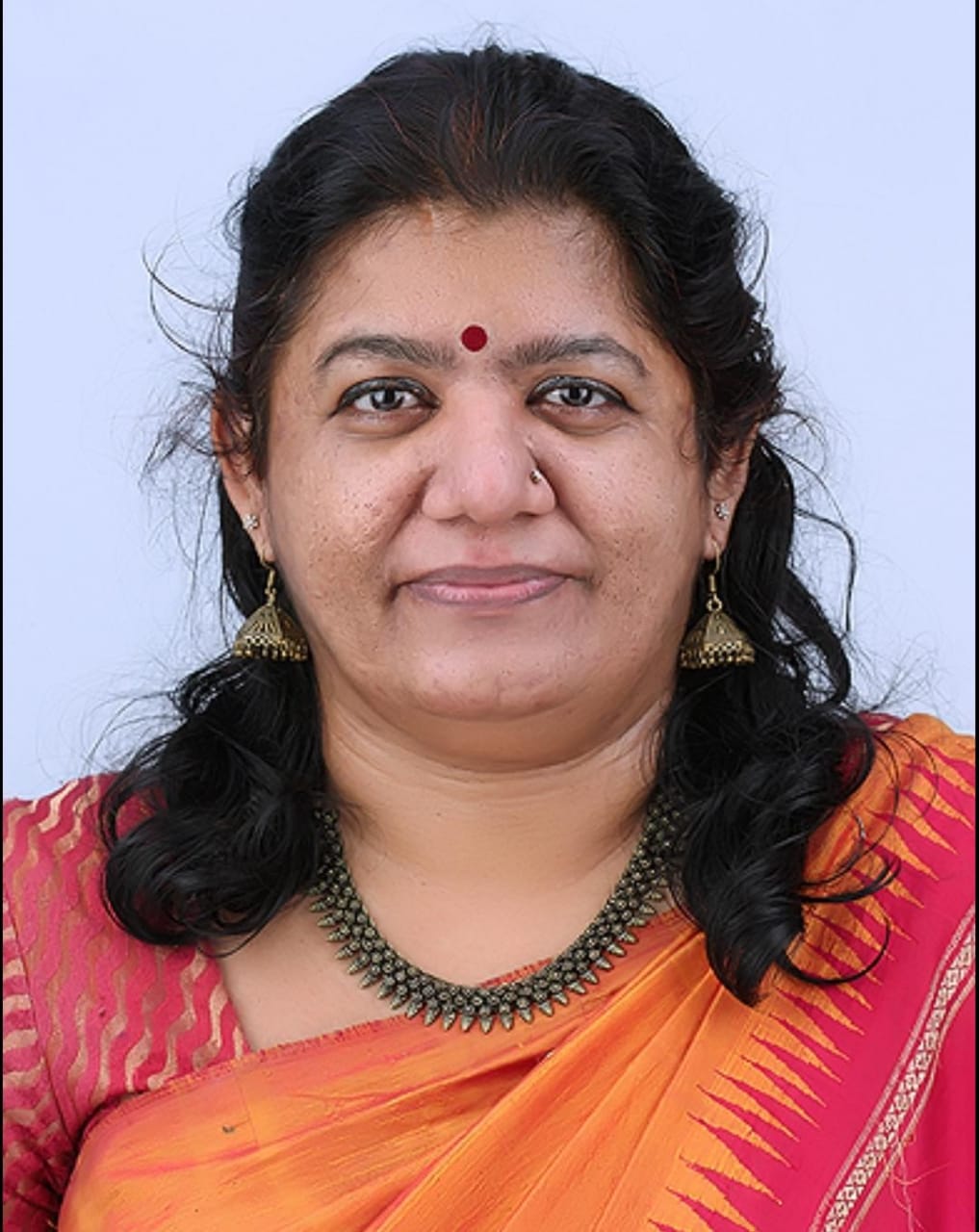 |
 |
 |
 |
| Mrs.Deepa S (1993-1997) |
Mr.Raghul (2001-2005) | Mr.Praveen Sreekumaran Nair (1998-2002) |
Mr.Abhilash Kunjukrishnan (1996-2000) |
 |
 |
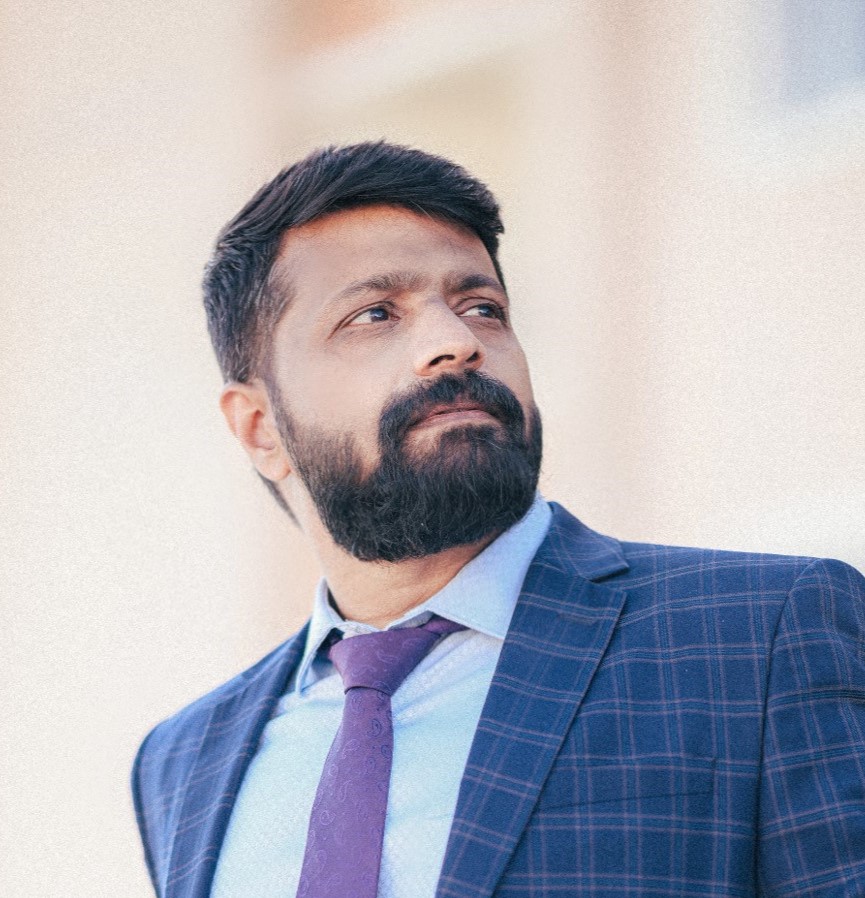 |
|
| Mr.Juvel Jose (1997-2001) |
Mr.Sajithkumar M (2002-2006) | Mr.Muhammed Junaid K K (1998-2002) | Mr.Nityanandan K (1999 – 2003) |
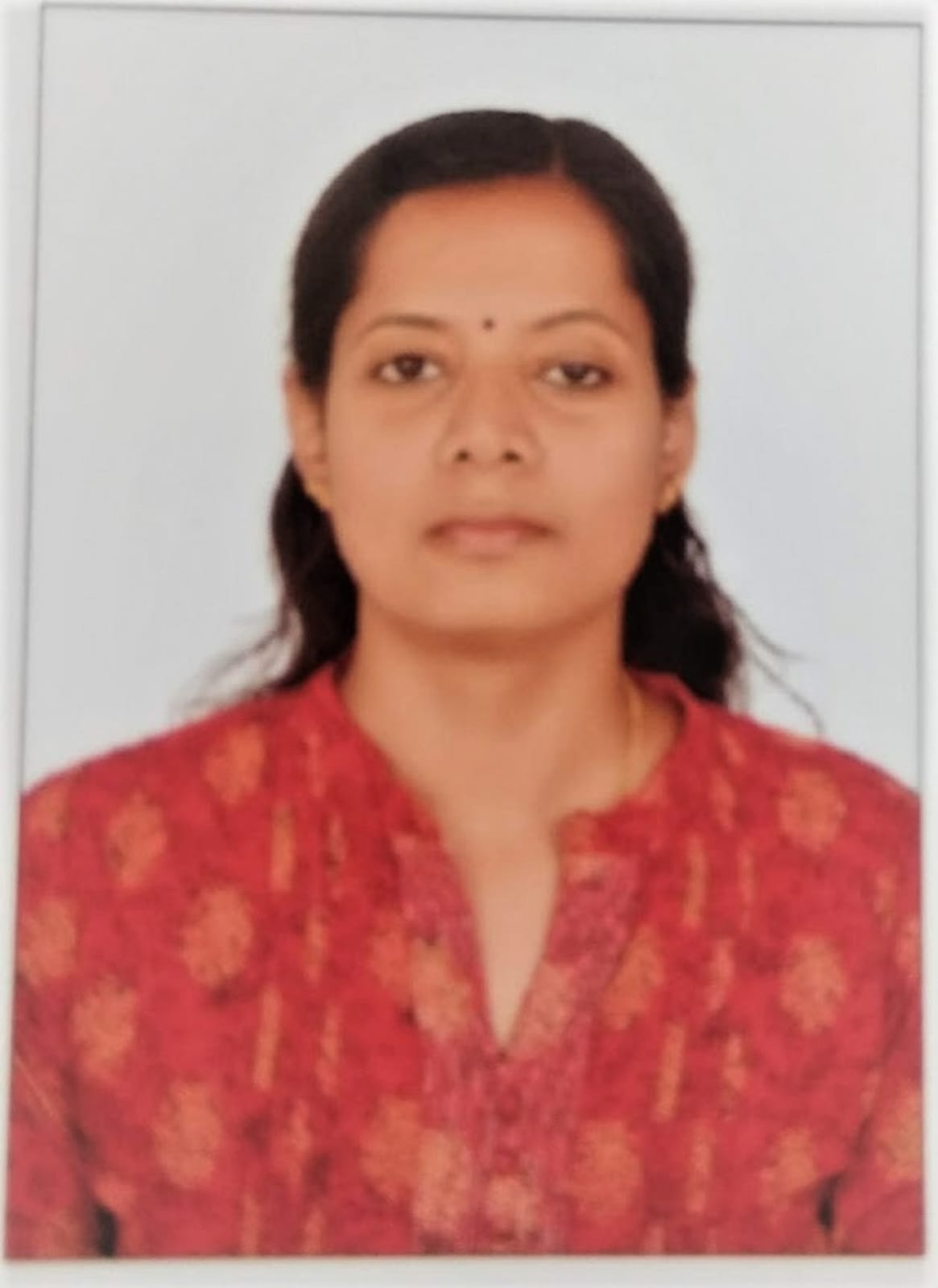 |
|||
| Dr.Maya K (2005-09) |
Kindly take time to enter your details into the Alumni Database using this form https://forms.gle/eryp4H97k7i5fkpC6
Join Our Alumni Whatsapp Group:
https://chat.whatsapp.com/L6ZIu69eUi6HXRkE1Dvp6M
ALUMNI MEET
The Grand Alumni Meet of the EEE department “Thirike 2024- Connecting Past to the Present” held on 2nd and 3rd February 2024, connected alumni from 1997-2023 batches, ex-faculty, faculty, staff, and current students. The two-day event kickstarted on 2/2/24 with an official inauguration in the college amphitheatre followed by a series of events, viz., honouring ex-faculty, distributing awards to eminent alumni and current students with notable achievements, interaction with students, cultural programmes and a campus tour. In the evening, Alumni members, faculty and staff reassembled at Hotel City Tower, Kasaragod for a nostalgic evening. The event ended positively on 3/2/24, aiming to reconvene in Kochi in July 2025.
ALUMNI ACHIEVEMENTS
eceived EHT supervisory license issued by Kerala State Electricity Licensing Board
 |
Sivapriya (1997-2001 Batch)- Successfully set up a global Institution that facilitates Indian culture learning for NRI kids imparted by the best creamy layer teachers of India, handpicked and well-trained. |
|
 |
Praveen Sreekumar Nair (1998-2002 Batch) received People Leadership Award 2023 for ‘Delivering 360° value by embracing change for Accenture 2025 vision’ from the Senior Managing Director, Accenture |
|
 |
Sijin V S (2000-2004 Batch) r |
Mariyam Shadra N A (2017-2021) Design & Estimation Engineer ( Presales Engineer), Euro Technoo |
 |
Rejess Cherian (2001-2005 batch) becomes the entrepreneur with NEBOSCH certification. |
|
 |
Swetha Bharath Shetty (2003-2007 Batch) has been successfully completed 8 weeks certification from the London School of Business and Political Science. |
EMINENT ALUMNI
 |
 |
 |
 |
| Leena K K (2003-2007) Sub Divisional Engineer, BSNL |
Sinsath Shameer (1997-2001) Program Manager, Microsoft |
Joseph P John (2003-2007) Part of team developing heavyhaul Battery Electric Locomotive |
Geevarghese Baby (1993-1997) Senior Electrical Engineer, Arab Engineering Bureau, Doha, Qatar |
 |
 |
 |
 |
| Shabna (1997-2001) Sr. Electrical Engineer, Khatib & Alami |
Juvel Jose (1997-2001) Entrepreneur, Started new factory as part of backward integration |
Bijuna K V (1999-2003) Sharjah Electricity |
Boby Varghese (1997-2001) Commander Indian Navy |
 |
 |
 |
 |
| Gayathri Ashokan (2001-2005) Engg Lead, Avionics systems Dept, Textron India Ltd |
Hari Krishna Pai (2006-2010) Superintendent of Police Kalimpong West Bengal |
Sujith Sahadev (1996-2000) Film Editor & Short Film Director |
Sumesh Pushpangadhan (1999-2003)CEO and Founder of MittLogik Group, Sweden |
 |
 |
 |
 |
| Anu (2000-2004) Senior Technology Architect, Infosys Ltd |
Ramil P P (2008-2012) Flight Controls Law and Function Engineer, Heart Aerospace AB |
Zainal abdeen (2016-2020) Technology Analyst, Infosys ltd |
Mariyam Shadra N A (2017-2021) Design & Estimation Engineer ( Presales Engineer), Euro Technoo |
 |
 |
 |
 |
| Krishnakumar R (2000-2004) Deputy General Manager, HLL Lifecare Ltd |
Praveen Sreekumaran Nair (1998-2002) Accenture |
Praviraj P G (2002-2006) Principal Engineer, American Electric Power (AEP) |
Ajumon Kurian Senior Maintenace Engineer Technical Services, Dubai, UAE |
 |
 |
 |
 |
| Deepa S (1993-2007) Associate Professor SCMS School of Engineering & Technology Karukutty |
Raghul (2001-2005) Senior Manager (Procurement) Hill Lifecare Ltd. |
Abhilash Kunjukrishnan (1996-2000) Project Manager Allianz Technology India |
Sajithkumar M (2002-2006) Assistant Engineer Relay Subdivision Kasaragod, KSEBL |
 |
 |
||
| Junaid K K (1998-2002) R&D Engineering Group Lead & Project Manager NXP Semiconductors Bangalore. |
Nityanandan K (1999-2003) Head of HR (Procurement) Safran Data Systems India Pvt. Ltd Bangalore |
Maya K (2005-2009) Senior Project Engineer FACTS System Design Hitachi Energy |
DEPARTMENTAL ACTIVITIES
 |
|
|
|
 |
 |
 |
 |
|
|
 |
|
|
|
 |
 |
 |
|
|
|
 |
 |
 |
|
 |
|
 |
|
 |
|
 |
|
 |
|
 |
|
|
|
 |
 |
|
|
 |
 |
 |
|
|
|
 |
 |
|
|
 |
 |
 |
 |
|
|
 |
 |
|
|
 |
 |
|
|
 |
 |
|
|
 |
 |














